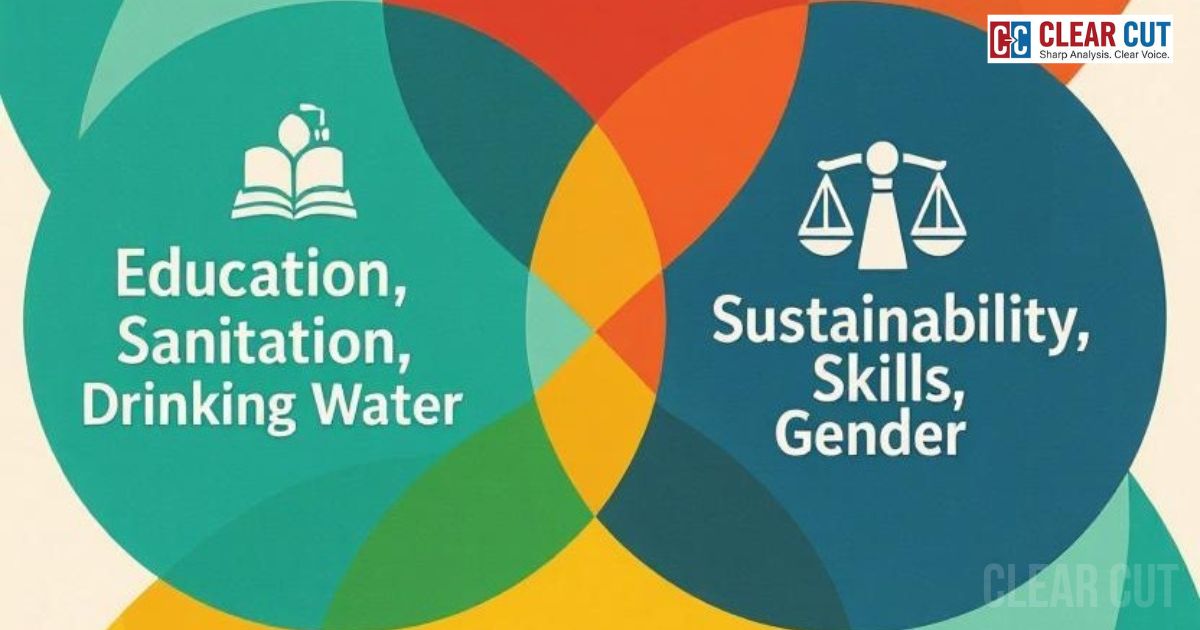Photo Credit: Janmojaya Barik
Clear Cut Livelihood Desk
New Delhi, UPDATED: Sep 27, 2025 09:20 IST
Written By: Janmojaya Barik
North Chennai, hitherto considered the industrial spine and cultural heart of Tamil Nadu’s capital, is seeing a record injection of funds and attention. Deputy Chief Minister Udhayanidhi Stalin recently announced an ₹8,000 crore development package, officially inaugurated at a function in Tiruvottiyur. The projects, which include a combination of civic infrastructure development and focused social welfare, are being backed by both the state government and corporate sponsors through Corporate Social Responsibility (CSR) expenditure.
At the same event, Chennai Petroleum Corporation Ltd., a significant industrial player in the area, committed ₹5 crore in CSR disbursements. The firm also undertook a very visible social program: issuing 526 aid devices to 300 differently abled recipients. Ranging from prosthetic limbs to battery-powered mobility aids, these were issued in collaboration with implementing agencies. CPCL’s social media updates on the event emphasized attempts by the company to equate industrial presence with local well-being, reflecting a wider pattern of corporations employing CSR not only as compliance but as visible engagement with host communities.
The government has tied the ₹8,000 crore package to tangible civic projects. Two notable additions to Chennai’s sanitation infrastructure were announced, such as a sewer-jetting machine valued at ₹1.5 crore and a sewer-cleaning vehicle worth ₹2 crore. These machines are expected to ease chronic issues with waste management in densely populated areas, reduce health risks, and modernize an outdated system that has long been a source of public complaints.
Support for disabled individuals is the other fulcrum of the initiative. Under officials, differently-abled students will receive between ₹2,000 and ₹1 lakh as scholarships to aid in educational expenses and avert dropout rates attributed to financial constraints. Concurrently, around 200 disabled athletes have received help amounting to about ₹5 crore through avenues like the Tamil Nadu Champions Foundation. This investment is aimed at providing a level playing field for representation in international sporting events, making Tamil Nadu a state that believes in inclusiveness in the international arena.
The package was also associated with wider political reforms by the government. Recent legislation on urban and rural local bodies has now included provisions for nominating around 14,000 people with disabilities to local bodies in Tamil Nadu. This entails nominations to corporations, municipalities, town panchayats, village panchayats, panchayat unions, and district panchayats. While some previous reports had referred to this as “election,” legal terminology prescribes nomination—a difference that makes a difference for rights and procedures. The step is important regardless: it ensures representation of persons with disabilities on decision-making forums, making inclusion a part of local governance systems.
At Tiruvottiyur, officials maintained that such steps are more than symbolic. They are aimed at addressing long-standing disparities in North Chennai, which has suffered the worst of industrialization without proportionate civic investment. By pairing heavy capital works with welfare programs and CSR donations, the state is trying to bridge the developmental divide between North Chennai and the rest of the city.
Commentators point out that the development of North Chennai will need to be sustained. Previous efforts have at times collapsed in the implementation phase, as a result of which local residents have been skeptical. With corporate players such as CPCL, whose CSR plans are publicly stated and time-bounded, there could be added accountability. The firm’s efforts are small compared with the state’s ₹8,000 crore plan but symbolically significant, an example of industry solidifying public policy objectives in a partnership model.
Deputy Chief Minister Stalin underscored this sentiment, calling the projects “a long-overdue recognition of North Chennai’s contribution to the city’s economy and culture.” He pointed to the assistive-device distribution and sanitation machinery as examples of development that reaches ordinary people directly, beyond headline infrastructure.
The package is a unique convergence of investment in capital, legal reform, and social responsibility underwritten by CSR. If realized as planned, it may redefine the image of North Chennai from a crowded industrial area to an area that reflects urban revival. The beneficiaries are students, athletes, and residents, and the plan is meant to convey that development is not solely about factories and bridges but also about access and dignity.
For the time being, the test will be making sure that the ₹8,000 crore does not become merely paper tigers. Execution schedules, open monitoring, and interdepartmental coordination of state government departments with the corporate sector will decide if this project is able to bring about tangible change on the ground. If successful, the North Chennai model can become an example of how Indian states integrate public funding and corporate CSR to attain growth.




